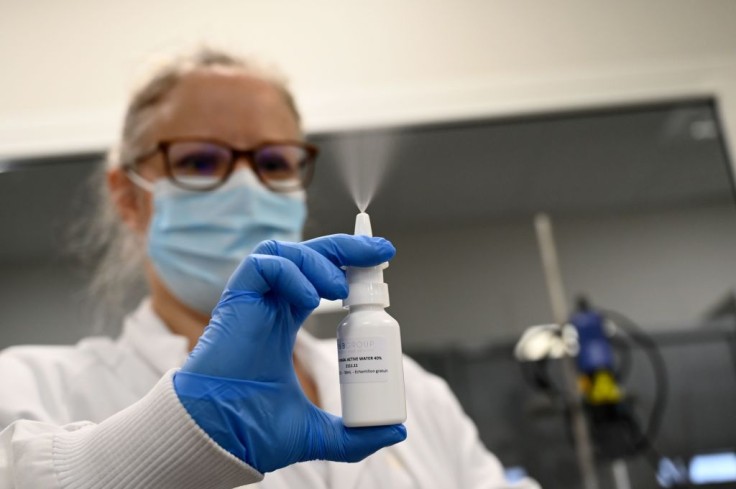
Medical researchers are making another breakthrough with the development of a new COVID-19 nasal spray that could protect people from all variants of the virus and it could be the most-awaited game-changer in ending the pandemic.
Experts from Northwestern University, Washington University in St. Louis, and the University of Washington are moving towards the first human trials of the new COVID-19 nasal spray following the successful results of their initial testings on mice subjects.
In a statement published on Northwestern Now, the experts said that their antiviral treatment will do away with problems like vaccine hesitancy, loss of vaccine effectiveness, challenges in the supply chain and storage of vaccines, and the actual vaccine administration. The nasal sprays are also easier to manufacture and could be self-administered and readily available at pharmacies once it passes all of the stringent requirements.
Read Also: Third COVID-19 Booster Shot for Eligible People May Be Rolled Out By Fall, According to CDC
How Does the New COVID-19 Nasal Spray Work?
Scientists have been working on this antiviral treatment since the start of the pandemic by first designing and then developing specific proteins, re-engineered as "minibinders" that would stick to the coronavirus spike proteins. These minibinders then stay on top of the spike proteins like a tripod that blocks the virus.
Initial tests showed that the minibinders never fell apart after a week inside a test tube. In the real world setting, this translated to reduced COVID-19 symptoms among those with the infection.
Further testing using the developed nasal spray showed that the minibinders prevented the outright infection of COVID-19 in mice. The proteins from the minibinders stopped COVID-19 from attaching to the ACE2 receptor and this suggested that the sprays will also work against other emerging variants of the coronavirus.
The promising results of the research on mice were published in the Science Translational Medicine journal.
How Will This Invention Help Families?
The research is one of 13 other new COVID-19 nasal sprays in development across the world that could make vaccination against the virus just another option and not as an emergency-use authorized treatment for the virus. Currently, children under 5 years old can't receive the vaccine in many parts of the world as there haven't been an approved jab. Thus, younger kids have become the most vulnerable demographic, along with some unvaccinated adults, in this pandemic.
If a nasal spray or nasal mist becomes available, it will make managing COVID-19 a lot easier. Nasal sprays are also considered mucosal vaccines against COVID-19. Dr. Sandy Douglas, who worked on the AstraZeneca vaccine, believes that nasal sprays can "reach parts of the immune system other vaccines don't" and will provide an antigen in the mucosa, or the tissues around the respiratory system, per The Mirror.
With the nasal spray, those who cannot get the jab, such as the kids, or those who refuse the vaccines and boosters could still get their protection from the mist. It will also lower the chances of transmission in families, schools, and communities where there are still plenty of vulnerable individuals.